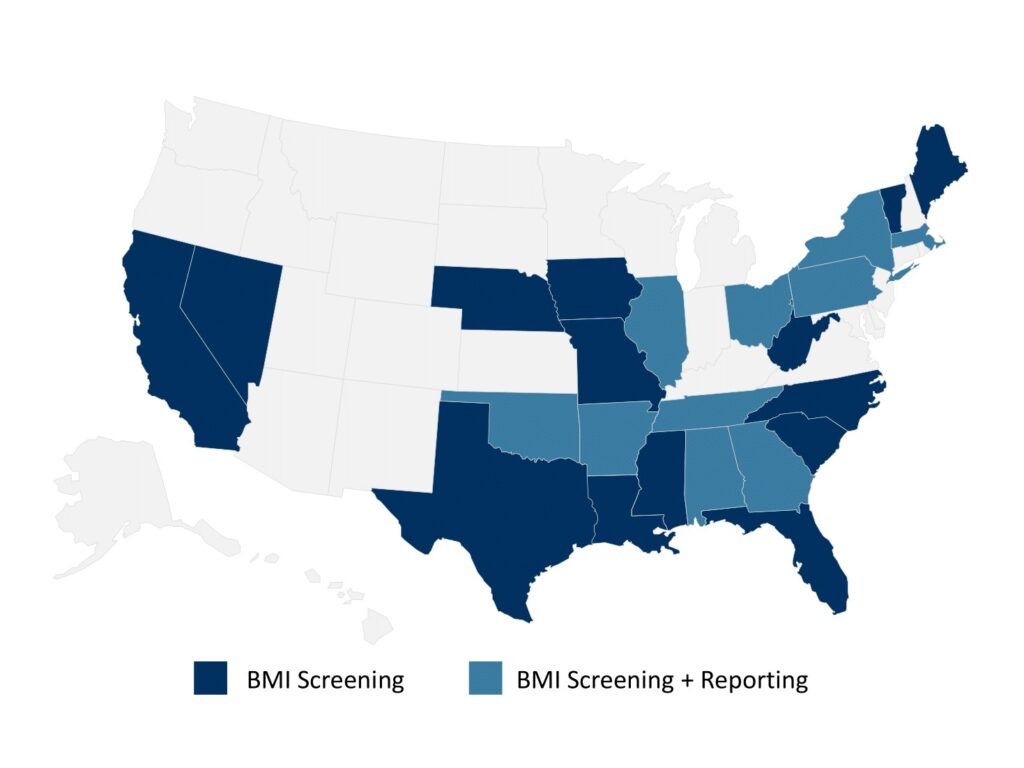
Overview
Half of public schools in the United States assess students’ height and weight and send reports to parents about their child’s weight status, a process known as BMI reporting. BMI reporting, which is inexpensive and can reach a very large number of families, was started because people thought that it might reduce pediatric obesity. However, sending a single report sent home to parents about a child’s weight status is a drop in the bucket in terms of what influences family dietary and physical activity patterns, which makes it a relatively weak intervention. Additionally, weighing youth in school may have unintended consequences, like increased teasing about weight or decreased body satisfaction. To address these issues, the Madsen Research team conducted an NIH-funded cluster-randomized trial in 75 schools across California. We found that sending BMI reports to parents did not improve students’ weight status and may increase students’ body dissatisfaction.
More details are available on the Fit Study website.
Publications
- Madsen KA, Thompson HR, Linchey J, Ritchie LD, Gupta S, Crawford PB, McCulloch CM, Ibarra-Castro A. Effect of School-Based Body Mass Index Reporting in California public schools: A Randomized Clinical Trial. JAMA Peds. Epub ahead of print, 2020. Nov 16:e204768. doi: 10.1001/jamapediatrics.2020.4768.
- Linchey J, King B, Thompson HR, Madsen KA. Parent Underestimation of Child Weight Status and Attitudes toward BMI Screening. Health Behav Policy Rev. 2019; 6(3):209-218.
- Thompson HR, Johnson R, Madsen KA, Fuller B. Impact of physical education litigation on fifth graders’ cardio-respiratory fitness, California, 2007-2018. Am J Public Health. 2019;109(11)1557-1563.
- Thompson HR, Linchey J, Gupta S, Madsen KA. Parents recall of, and reactions to, school-based BMI reports. Childhood Obesity. 2019;15(8): 548–554.
Reports & Presentations
Research Brief: Body Mass Index (BMI) Reports Do Not Improve Student Health
The Fit Study was a 3-year randomized controlled trial designed to help schools make evidence-based decisions about the practice of school-based body mass index (BMI) screening and reporting. We found that sending BMI reports to parents did not improve students’ weight status and may increase students’ body dissatisfaction.